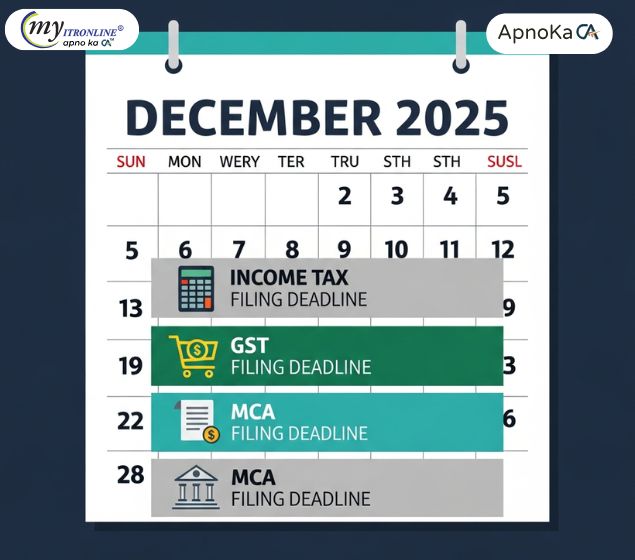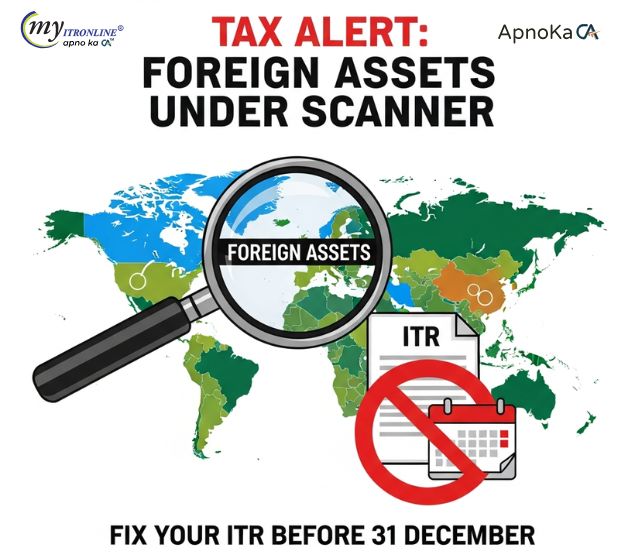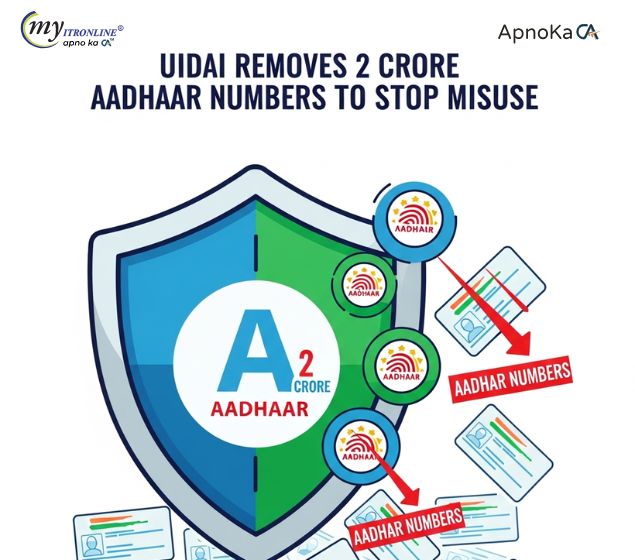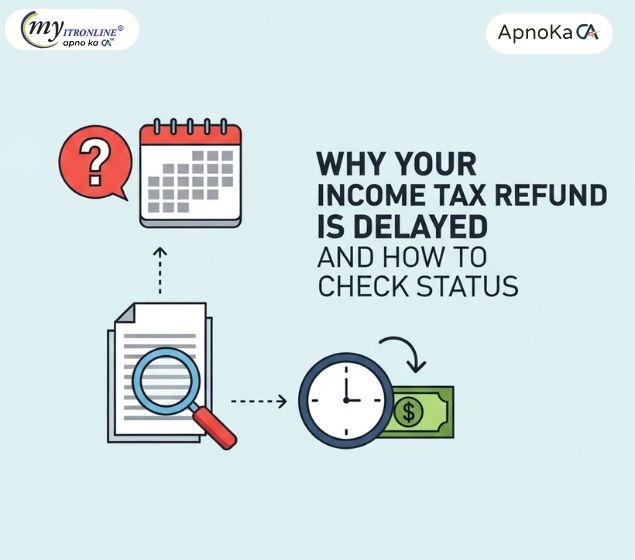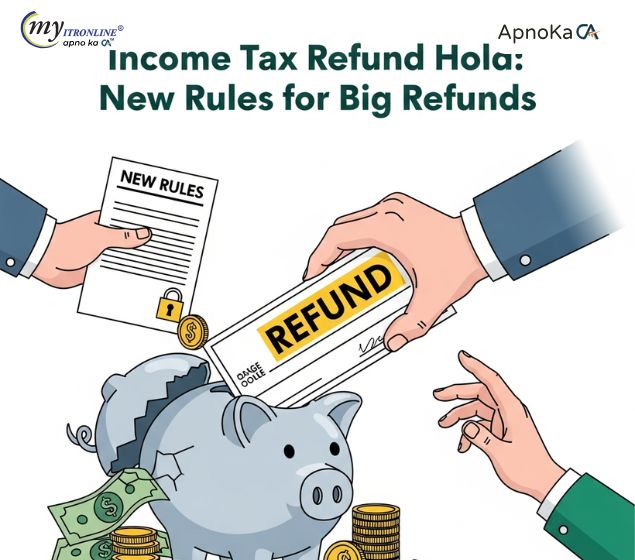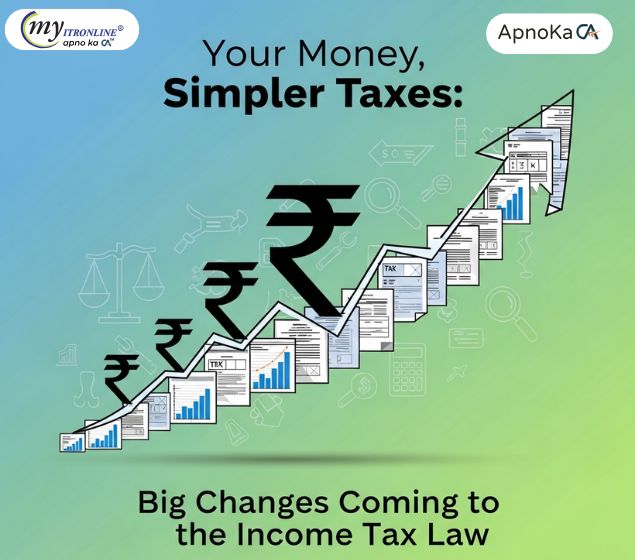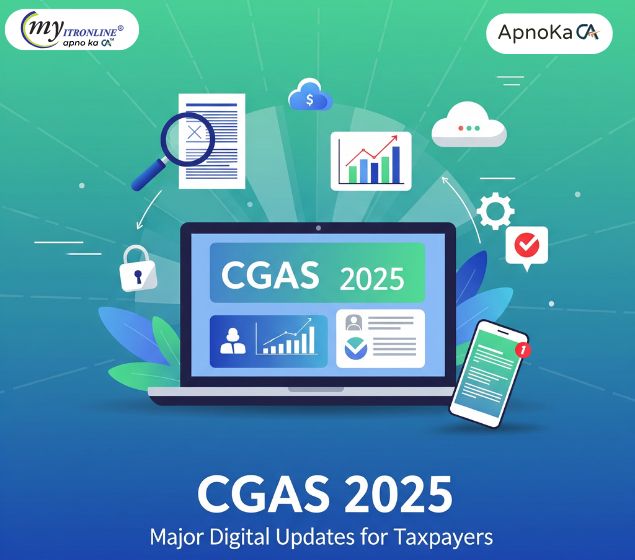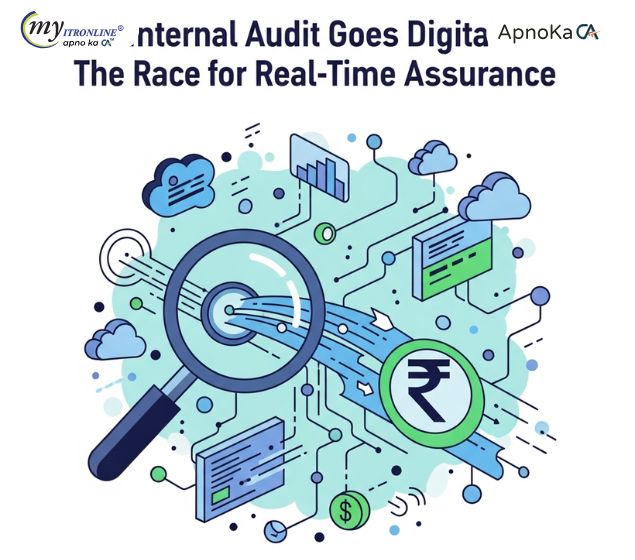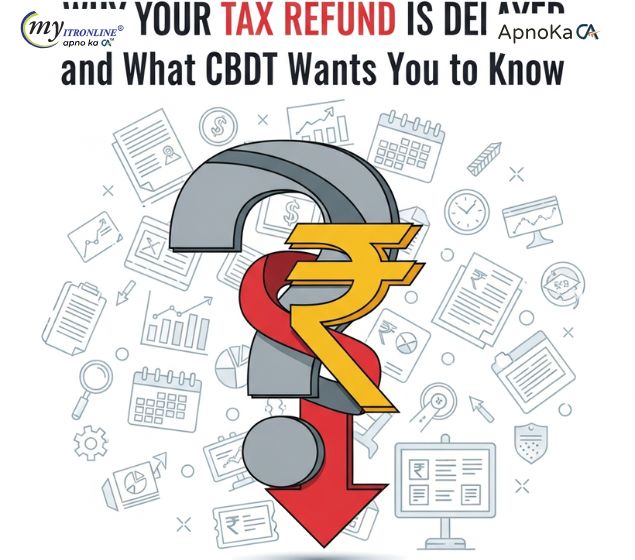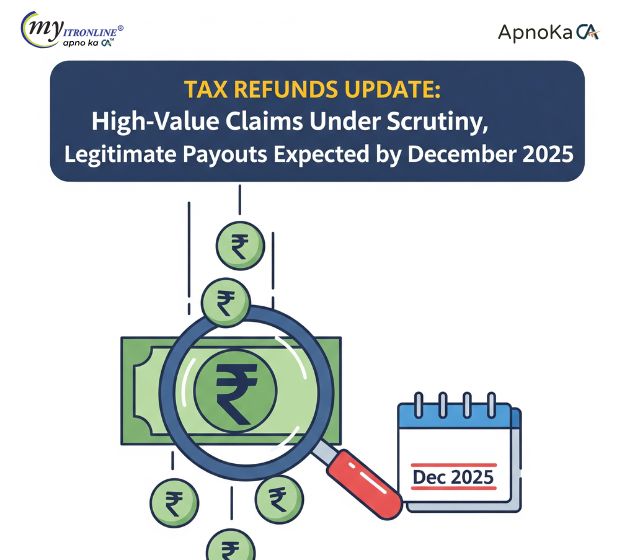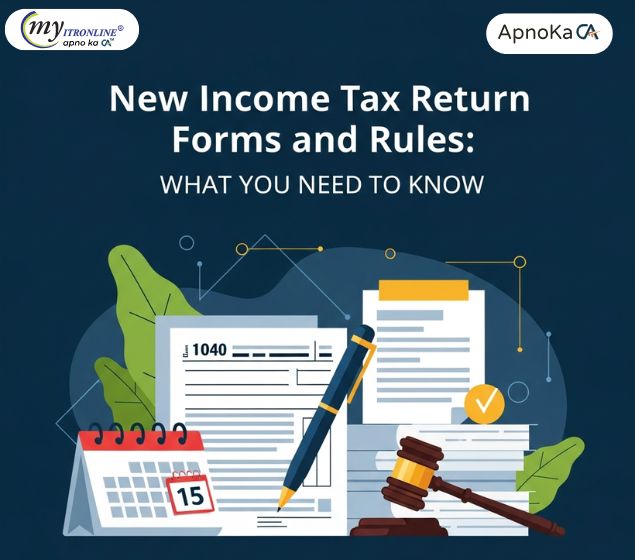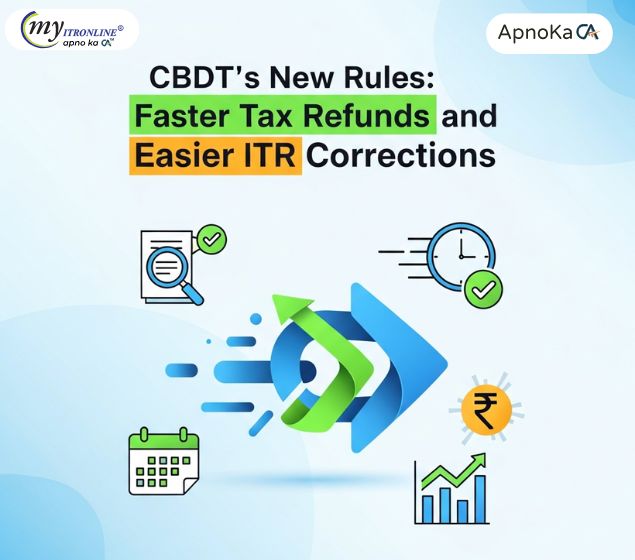HRA in the New Tax Regime: Key Insights to Safeguard Your Tax Filing
This blog demystifies the treatment of House Rent Allowance (HRA) under India's New Tax Regime. It clarifies whether HRA is exempt, outlines its impact on your tax filing process, and provides crucial advice on how to navigate the changes to avoid receiving tax notices. Learn the key differences from the old regime and ensure your tax compliance is seamless for the current financial year and beyond.
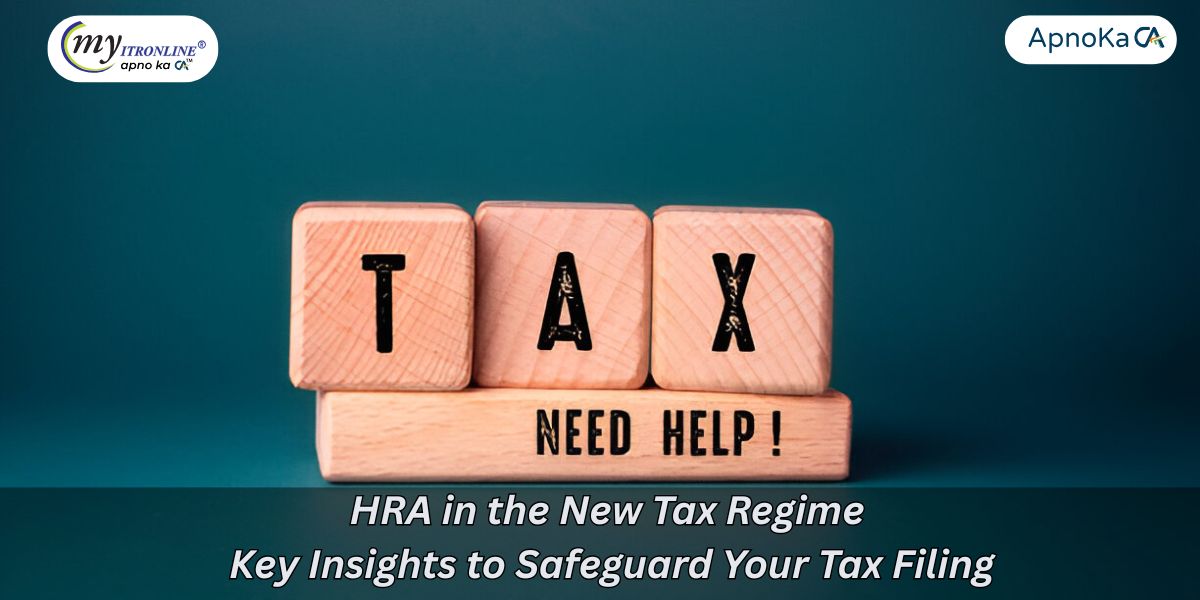
Claiming HRA Deduction in the New Tax Regime: Essential Information to Avoid Tax Notices
House Rent Allowance (HRA) has traditionally been one of the key tax benefits available to salaried individuals in India. It enabled taxpayers to seek an exemption on a portion of their rent payments, thereby lowering their taxable income. This made HRA a vital aspect of tax planning, particularly for those residing in rented homes in major cities.
However, with the advent of the **New Tax Regime (Section 115BAC)**, which commenced in the Financial Year 2020-21 (and will now be the default regime from FY 2023-24 onward), the framework for tax exemptions and deductions has experienced a considerable shift. The new regime presents lower tax slab rates but requires taxpayers to forgo many well-known exemptions and deductions, including the HRA exemption. This change necessitates that taxpayers thoroughly comprehend the new regulations to prevent errors during tax returns that could lead to notices or penalties from the Income Tax Department.
This blog will discuss the consequences of HRA under the new tax regime, its effects on your tax filings, and provide practical advice on how to prevent and address potential tax notices.
HRA Under the Old Tax Regime: A Brief Overview
Before examining the new regime, it's crucial to grasp how HRA functioned under the previous system. According to **Section 10(13A)** of the Income Tax Act, salaried employees could claim HRA exemption based on the lowest of the following three criteria:
- Actual HRA received from the employer.
- 50% of Basic Salary + Dearness Allowance (DA) for individuals living in metro areas (Delhi, Mumbai, Chennai, Kolkata), or 40% for those in non-metro regions.
- Actual rent paid minus 10% of Basic Salary plus DA.
This exemption considerably decreased taxable income, making it a highly prized element of a salary package. To claim this exemption, individuals were required to submit rent receipts, rental agreements, and the landlord's PAN if the annual rent surpassed ₹1 lakh.
HRA and the New Tax Regime: The Major Shift
The fundamental concept of the New Tax Regime (Section 115BAC) is to provide simplicity through lower tax rates and a reduced number of deductions. Consequently, the **HRA exemption is explicitly not permitted** if you opt for the new tax regime. This implies that:
- The total HRA received as part of your salary is completely taxable. No portion of it can be claimed as an exemption, irrespective of the rent you pay.
- Under the new tax regime, there is no requirement to provide your employer or the Income Tax Department with rent receipts or other documentation related to rent for House Rent Allowance (HRA) purposes.
- This reduces the amount of paperwork involved, but it may also result in a higher taxable income than if you had opted for the old regime, especially if you were benefiting from multiple deductions. The government's aim was to streamline the tax calculation process, making it easier for those who prefer minimal tax planning or do not have many qualifying deductions.
Effects on Your Tax Filing (ITR)
The influence of HRA on your ITR filing under the new tax regime is both direct and notable:
- **The entire HRA is considered Taxable Income:** When you submit your ITR under the new regime, the full amount of HRA shown on your **Form 16** will be part of your total taxable salary. There will be no distinct entry for the HRA exemption.
- **No Claim for HRA Exemption in ITR Form:** The ITR forms (such as ITR-1 for salaried individuals) have provisions for both tax regimes. By opting for the new tax regime, the sections for HRA exemption under Section 10(13A) will either be disabled or will not correspond to your calculations.
- **Documentation Simplified:** Since HRA exemption cannot be claimed, you no longer need to keep and submit rent receipts or landlord's PAN information for HRA purposes when selecting the new regime.
- **Comparison is Essential:** Prior to filing, it’s important to assess your tax obligations under both the old and new tax regimes. Many tax applications and online tools are available to help determine which regime offers more benefits based on your earnings, HRA amount, and other allowable deductions (such as 80C, 80D, home loan interest, etc., which are often not permitted in the new regime).
Comprehending the Default Regime and How to Opt Out
Starting from the Financial Year 2023-24 (Assessment Year 2024-25), the New Tax Regime will be the default choice for individuals and Hindu Undivided Families (HUFs). This means that unless you specifically opt out, your income will be subject to taxation under the new regime.
- **For Salaried Individuals (without business income):** You are able to select your preferred tax regime (either old or new) directly when filing your Income Tax Return. There is no requirement to notify your employer in Form 10-IE unless you have business income. However, it is recommended to inform your employer to ensure that TDS is calculated correctly throughout the year.
- **For Individuals with Business Income:** If you earn income from a business or profession and wish to reject the new tax regime in favor of the old one, you must submit **Form 10-IEA** by the deadline for filing your ITR (July 31st for individuals, or October 31st for those subject to audit). This option, once selected by a business individual, is typically a one-time decision for a specific assessment year, with certain stipulations for reverting back.
How It Impacts Tax Notices and Ways to Avoid Them
Incorrectly claiming HRA under the new tax regime or making other mistakes regarding the choice of regime can result in tax notices. Here are some tips to prevent them:
- Accurate Regime Selection:
- Inform Employer Correctly: Although it's not obligatory for non-business individuals to submit Form 10-IEA to their employer, it's essential to communicate your chosen tax regime at the start of the financial year. This ensures your TDS (Tax Deducted at Source) is accurately calculated throughout the year and properly reflected in your Form 16.
- **Consistency in ITR Filing: Make sure that the tax regime you select in your ITR form (and any related forms like 10-IEA if relevant) matches how your income has been reported and taxes deducted.
- Understanding HRA in Form 16:
- If you choose the new tax regime, your Form 16 will typically include the full HRA as part of your taxable income without any exemptions. Do not attempt to claim an exemption for it in your ITR manually.
- In cases where your employer accounted for the HRA exemption based on your declaration (assuming you indicated you would be opting for the old regime), but you later choose the new regime when filing, there will be a discrepancy. This means the HRA amount initially shown as exempt in your Form 16 will now be taxable, increasing your tax burden and possibly leading to additional self-assessment tax.
- Mismatch Between Form 26AS/AIS/TIS and ITR:
- The Income Tax Department employs advanced systems to cross-verify information from multiple sources (Form 26AS, Annual Information Statement (AIS), Taxpayer Information Summary (TIS).
- Incorrectly claiming HRA exemption under the new regime, or having inaccuracies in your income reporting due to a misunderstanding of HRA regulations, will create a mismatch with the data available to the ITD. Such discrepancies often trigger tax notices under sections like 143(1) (initial notification for preliminary assessment), 142(1) (inquest before assessment), or even 143(2) (scrutiny assessment).
- Specific Notices for HRA (Old Regime and General Compliance):
While HRA exemption is not allowed in the new regime, it’s important to note that HRA claims have historically prompted notices for various reasons in the old regime:
- TDS on Rent (Section 194IB): If you pay monthly rent exceeding ₹50,000 to a resident Indian landlord, you must deduct 2% TDS on the rent and remit it to the government using **Form 26QC**. Not doing so, even while claiming HRA under the old regime, could result in notices and penalties. While this is mainly an issue related to the "old regime" for HRA claims, it emphasizes the necessity of overall rental compliance.
- Payments to Relatives: If you rent from a relative (such as parents), be sure there’s a legitimate landlord-tenant relationship, a formal rent agreement, and all transactions occur through banking methods. The relative must also declare this rental income in their ITR. Any inconsistencies here can also lead to scrutiny.
These considerations remain applicable if you opt to stay with the old regime for HRA benefits. However, for the new regime, HRA-related notices pertaining to claiming exemptions are completely eliminated since the exemption itself no longer exists.
Responding to a Tax Notice
If you get a tax notice regarding HRA or any other issue, it is essential to:
- Examine Thoroughly: Comprehend the precise reason for the notice. It will indicate the section under which it has been issued (e.g., 143(1), 142(1)).
- Compile Documents: Gather all pertinent documents (Form 16, bank statements, evidence of income/deductions, rental agreement if relevant for the old regime, etc.).
- Reply Promptly: Follow the deadline specified in the notice.
- Consult a Professional: If you feel uncertain, reach out to a tax advisor or Chartered Accountant (CA). They can assist you in understanding the notice and formulating a suitable response.
- Submit Revised/Updated ITR (if needed):If the notice highlights an actual mistake, you may need to submit a Revised ITR (if within the deadline) or an Updated ITR (ITR-U, with a penalty, if the deadline for the revised ITR has passed).
Conclusion
The introduction of the new tax regime has significantly changed the treatment of HRA for tax purposes. For those opting for the new regime, the exemption for HRA is no longer accessible, and the entire HRA portion becomes fully taxable. This simplification aims to make the tax filing process smoother but requires taxpayers to be particularly mindful of the changes to avoid mistakes that could result in tax notices. Always evaluate your tax liability under both regimes before finalizing your decision, ensure consistency in your declarations, and keep detailed records. By grasping these new regulations, you can manage your tax filing efficiently and ensure complete adherence to the Income Tax Department.
FILING YOUR INCOME TAX RETURN F.Y 2024-25 (A.Y. 2025-2026) WITH MYITRONLINE
The income tax filing deadline is right around the corner. If you haven’t filed yet, do it today with Myitronline! Avoid last minute rush and file your tax return today on MYITRONLINE in Just 5 mins.(www.myitronline.com)
If you are looking for eCA assistance to file your income tax return/ GST, you can opt for MYITRONLINE eCA assisted plan starting
Upload Salary Individual Form-16
If you have any questions with filing your tax return, please reply to this mail. info@myitronline.com OR call 9971055886,8130309886.
Note-All the aforementioned information in the article is taken from authentic resources and has been published after moderation. Any change in the information other than fact must be believed as a human error. For queries mail us at marketing@myitronline.com
Krishna Gopal Varshney
An editor at apnokacaKrishna Gopal Varshney, Founder & CEO of Myitronline Global Services Private Limited at Delhi. A dedicated and tireless Expert Service Provider for the clients seeking tax filing assistance and all other essential requirements associated with Business/Professional establishment. Connect to us and let us give the Best Support to make you a Success. Visit our website for latest Business News and IT Updates.
Leave a reply
Your email address will not be published. Required fields are marked *Share this article
Krishna Gopal Varshney, Founder & CEO of Myitronline Global Services Private Limited at Delhi. A dedicated and tireless Expert Service Provider for the clients seeking tax filing assistance and all other essential requirements associated with Business/Professional establishment. Connect to us and let us give the Best Support to make you a Success. Visit our website for latest Business News and IT Updates.
View articles








